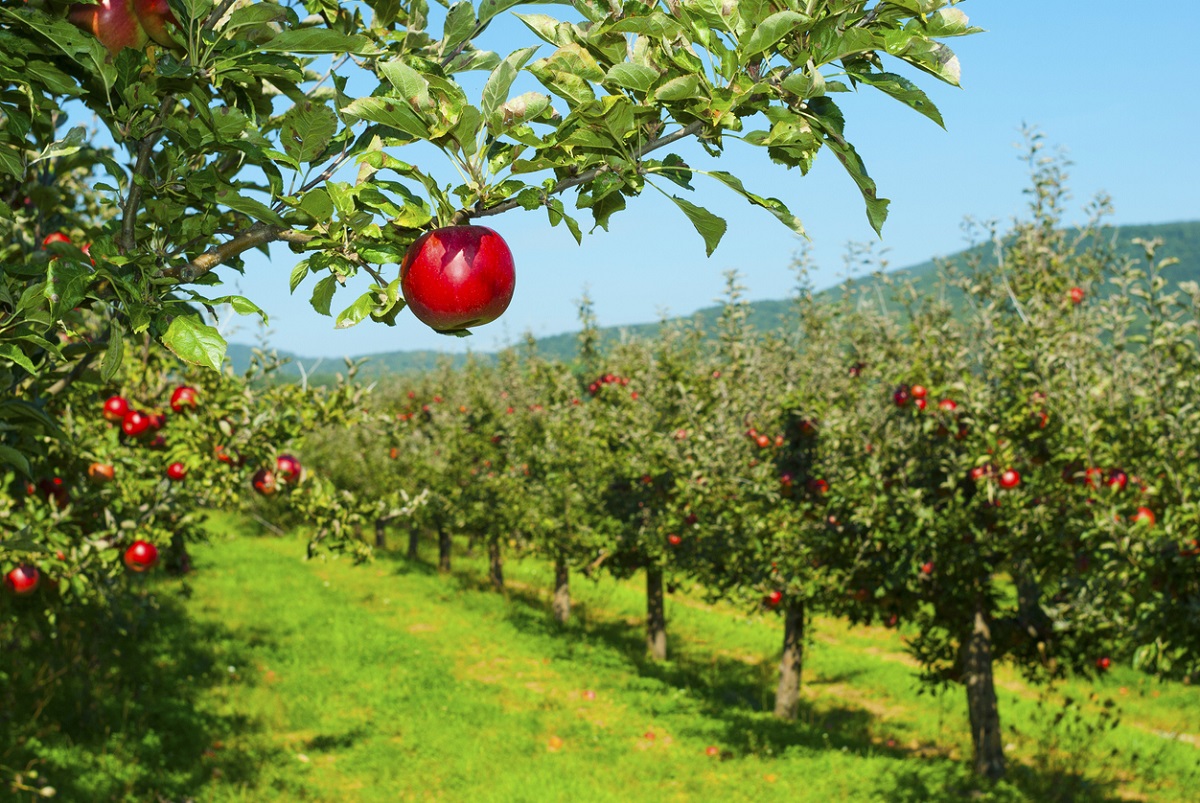
Identified Gene Boosts Water Use Efficiency in Apples
April 7, 2021| |
Researchers identified a gene that can increase apple's water use efficiency (WUE) when it is overexpressed. This discovery can be a potential solution to the water deficit in China's apple industry, one of the major limiting factors of apple production in some parts of the country.
Scientists investigated the relationship between autophagy, the natural mechanism cells use to remove its unnecessary components, and water use efficiency regulation. Autophagy has been reported to participate in a plant's various stress responses. The scientists identified MdATG8i as an autophagy protein in apples that play a role in improving salt tolerance. Their study explored its biological function in response to drought stress and found that over-expressing it resulted in higher WUE in apple plants under long-term moderate drought conditions leading to improved photosynthetic efficiency. Further investigation also revealed that photosynthetic capacity and accumulation of sugar and amino acids were higher in the transgenic apples compared to its wild-type counterparts which can be attributed to the transgenic apple's ability to maintain stomatal aperture, organized chloroplasts, and strong antioxidant activity. These findings led to the scientists' conclusion that MdATG8i overexpression likely promotes autophagic activity which may be related to the described changes in the plant's system. The new transgenic apple lines provide an optimal material for future research of apple varieties that show improved WUE under long-term moderate drought conditions.
Read the full article in Horticulture Research to know more.
| |
You might also like:
- Scientists Use CRISPR to Develop Apples Resistant to Fire Blight
- U.S. FDA Approves Arctic® Fuji Apple
- Strong Sales Figures Indicate Demand for GM Non-browning Apple
Biotech Updates is a weekly newsletter of ISAAA, a not-for-profit organization. It is distributed for free to over 22,000 subscribers worldwide to inform them about the key developments in biosciences, especially in biotechnology. Your support will help us in our mission to feed the world with knowledge. You can help by donating as little as $10.
-
See more articles:
-
News from Around the World
- Climate Change Slowed Agricultural Productivity Growth by 21% since 1961
- Study Finds Spinach as Edible Substrate to Grow Meat from Lab
- New Heat Sensing Gene to Help Crops Battle Climate Change
- Health Canada: Gene-Edited Crops are Safe
- Experts Tackle Importance of New Breeding Technologies in Food and Nutritional Security
- GM White Clover Field Trial in Australia Gets Approval
- Experts Highlight Impacts of Agri-biotech Adoption in Vietnam
- Labeling Gene-Edited Foodstuffs is Impossible Says Italian MEP
-
Research Highlights
- Identified Gene Boosts Water Use Efficiency in Apples
-
Plant
- Japanese Consumers Prefer Gene Editing Applications on Vegetables over Livestock
- Experts Present Two Efficient CRISPR-Cas9 Systems for Soybean
- MitoTALENs Reveal Role of Mitochondrial Gene in Rice Pollen Development
-
Read the latest: - Biotech Updates (February 4, 2026)
- Gene Editing Supplement (January 28, 2026)
- Gene Drive Supplement (February 22, 2023)
-
Subscribe to BU: - Share
- Tweet

